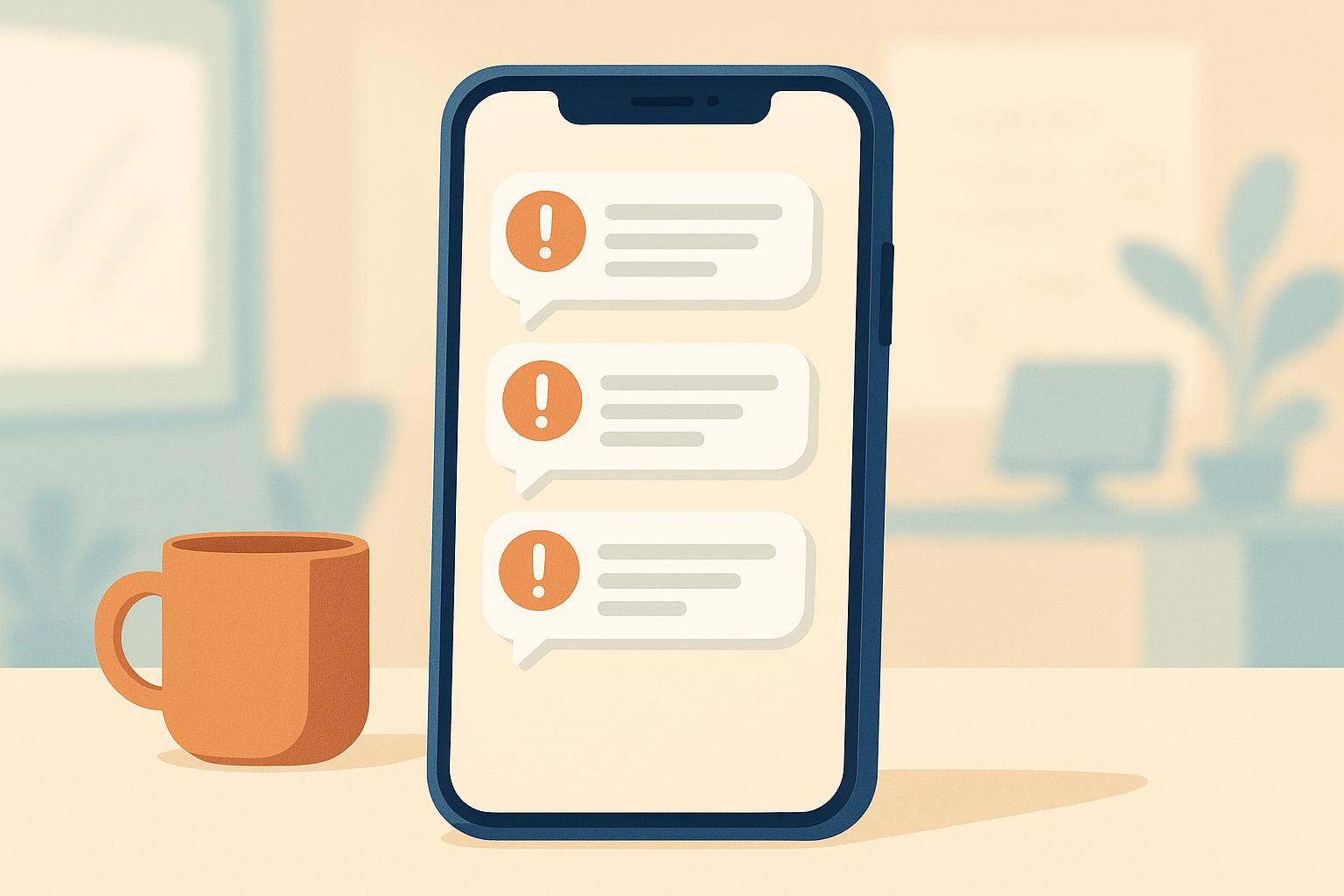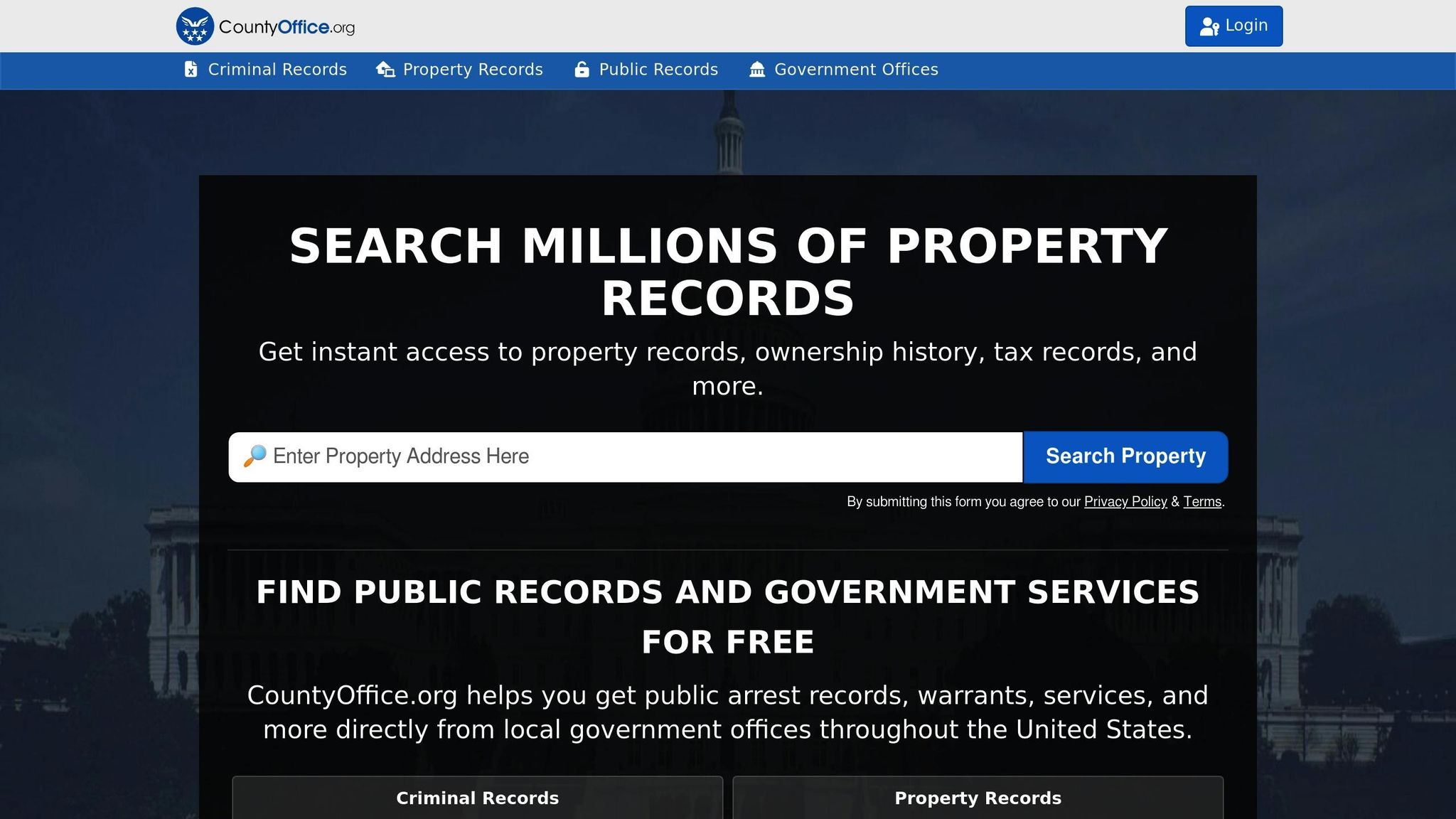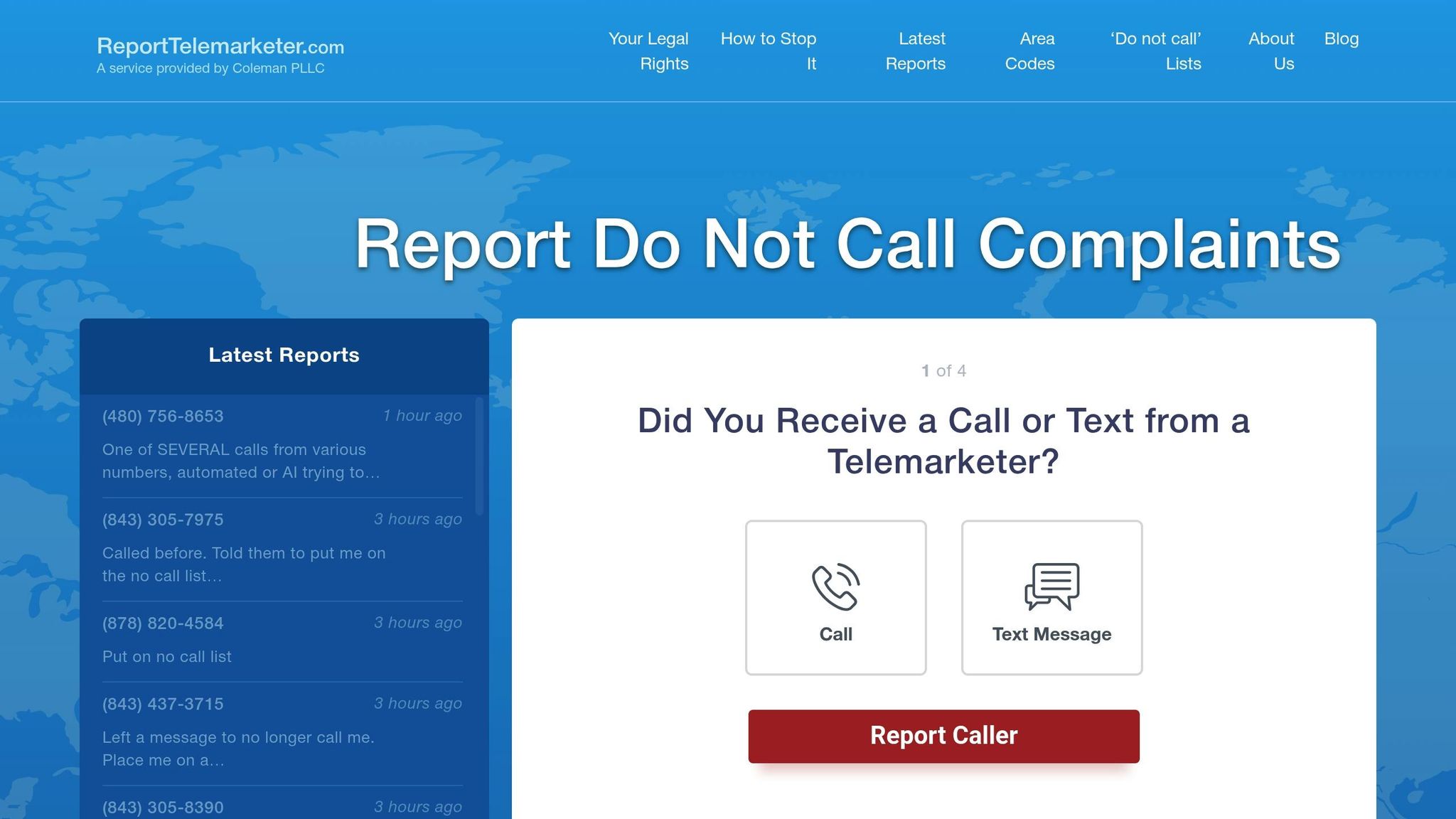
The Telephone Consumer Protection Act (TCPA) protects you from unwanted telemarketing calls, texts, and faxes. Violations can cost telemarketers $500 per instance. Here’s what counts as a violation:
- Robocalls: Automated calls without your consent.
- Text Messages: Unsolicited texts sent without permission.
- Do Not Call List: Contacting numbers registered on the National Do Not Call Registry.
- Ignored Stop Requests: Continuing communication after you’ve asked them to stop.
Signs of a Violation include calls outside 8 AM–9 PM, lack of clear caller ID, or ignoring opt-out requests. Keep records of violations (screenshots, call times, etc.) and report them through services like ReportTelemarketer.com to take action.
What Is TCPA Compliance? – CountyOffice.org

Common TCPA Violations
Here’s a breakdown of key violations under the TCPA that consumers should be aware of:
Unauthorized Robocalls
Robocalls that use prerecorded or artificial voices without prior approval violate the TCPA. Common examples include:
- Calls made without clear and explicit consent
- Use of autodialers to contact cell phones
Illegal Text Messages
Sending text messages as part of a campaign without securing prior express consent also violates the TCPA.
Do Not Call List Violations
Reaching out to phone numbers listed on the National Do Not Call Registry is a clear breach of TCPA rules.
Ignored Stop Requests
Failing to honor stop requests is another major violation. This includes:
- Ignoring verbal requests to stop further contact
- Disregarding replies like "STOP" to text messages
- Not updating internal do-not-call lists as requested
| Violation Type | Required Action | Consumer Rights |
|---|---|---|
| Robocalls | Obtain prior consent | Report unauthorized calls |
| Text Messages | Secure proper consent | Request immediate cessation |
| Do Not Call | Check registry compliance | Report violations to authorities |
| Stop Requests | Honor requests promptly | Document ongoing violations |
TCPA Violation Examples
Here are three examples that highlight common issues with TCPA compliance.
Do Not Call List Errors
A telemarketer in Florida, using the number 300-3879, placed a call to a registered "Do Not Call" number at 5:40 a.m. on Easter Sunday. This is a clear example of disregarding the protections offered by the Do Not Call Registry.
Missing Opt-Out Options in Texts
Text message campaigns are required to provide clear instructions for opting out. Here’s a comparison:
| Required Element | Compliant Example | Non-Compliant Example |
|---|---|---|
| Opt-out Instructions | "Reply STOP" | No instructions provided |
Failing to include opt-out options can lead to violations.
Calls to Wrong Numbers
A telemarketer using the number 465-3076 continued making calls even after being asked to stop. This shows the importance of respecting requests to cease communication and ensuring consent is verified, especially when dealing with reassigned numbers. Telemarketers must update their records promptly to avoid repeated mistakes.
sbb-itb-a8d93e1
Spotting and Reporting Violations
Signs of a Violation
Here are some common signs that could indicate a TCPA violation:
| Warning Sign | Details |
|---|---|
| Timing | Calls made before 8 AM or after 9 PM local time |
| Identification | Caller fails to provide clear or accurate information |
| Automation | Pre-recorded messages sent without prior consent |
| Consent | Persistent contact after you’ve opted out |
| Registry Status | Marketing calls to numbers listed on the Do Not Call (DNC) Registry |
Keeping Records of Violations
Having detailed records strengthens your case. Here’s how you can document violations effectively:
- Take screenshots of any spam text messages you receive.
- Note down the dates and times of unwanted calls.
- Record your interactions with telemarketers, including any requests to stop contact.
- Keep a copy of your DNC registration confirmation.
- Save voicemails from automated systems as evidence.
These records will make it easier to report the violation and take further action.
How to Report via ReportTelemarketer.com

Report TCPA violations quickly and easily through ReportTelemarketer.com. Here’s how it works:
- Submit Your Report
Fill out the online form with details about the unwanted call or message. - Investigation Process
The legal team uses specialized tools to investigate the phone number you reported.
"You fill out the report and we will do our best to identify the telemarketer and hopefully stop them from calling you"
- Legal Action
If violations are confirmed, the team takes formal legal action against the telemarketer.
The service is free for consumers, and you may recover up to $500 per violation. The legal team manages the entire process, from investigation to resolution, while keeping you updated every step of the way.
TCPA Violation Penalties
Standard Fines
The TCPA enforces compliance by issuing fines for each improper call or text. These fines apply on a per-violation basis, and penalties can escalate sharply if the violation is found to be intentional.
Costs of Repeated Violations
Repeated violations can lead to steep financial consequences. Factors like the campaign’s length, the number of consumers impacted, past compliance history, and how promptly a business responds to "stop" requests all influence the total penalties. Following TCPA rules is essential to avoid costly fines and safeguard consumer rights.
Next, we’ll examine how these penalties strengthen consumer protections under the TCPA.
Summary
Key Points
Violations of the TCPA (Telephone Consumer Protection Act) include robocalls made without permission, unsolicited text messages, and contacting numbers listed on the Do Not Call Registry. Each violation can result in fines of $500 per call. Common infractions include:
- Making calls without prior consent
- Ignoring requests to stop contacting
- Reaching out to numbers on the Do Not Call list
- Failing to provide proper caller identification
What to Do Next
If you’re dealing with unwanted calls or texts, take action right away. ReportTelemarketer.com offers free investigations and takes legal steps to address these violations.
"If we can successfully identify the telemarketer and determine that the telemarketer did not have consent to call or text you, then we may file a cease and desist letter or a formal complaint against the telemarketer to get the calls stopped."
Here’s how you can protect yourself:
- Keep a record of dates, times, and details of the calls or messages.
- Submit your records through ReportTelemarketer.com for verification and further action.
"As a consumer protection law firm, we offer our services at no out of pocket cost to you, the consumer."
So far, the platform has assisted over 30,000 people in tackling unwanted telemarketing communications.
FAQs
What actions by telemarketers are considered TCPA violations?
Under the TCPA (Telephone Consumer Protection Act), certain actions by telemarketers are considered violations. These include making robocalls without prior consent, sending unsolicited text messages, or calling numbers listed on the Do Not Call Registry.
To prove a violation, you should document details like the date, time, and content of the call or text. Services like ReportTelemarketer.com can help investigate these incidents and take action, such as filing complaints or cease and desist letters, to stop the unwanted communications.
What should I do if a telemarketer keeps contacting me after I’ve opted out?
If a telemarketer continues to reach out after you’ve opted out, it’s important to take action. You can report the unwanted calls or messages to ReportTelemarketer.com, a service dedicated to protecting consumers from telemarketing violations. They will investigate the issue, identify any violations, and may take steps such as sending a cease and desist letter or filing a formal complaint against the telemarketer.
Remember, you have the right to privacy, and persistent unwanted calls or messages are not acceptable under the law.
Are there any exceptions to the TCPA rules for certain calls or messages?
Yes, there are specific exceptions to the TCPA rules for certain types of calls and messages. For example, calls made for emergency purposes or those from nonprofit organizations are generally exempt from TCPA restrictions. Additionally, informational calls such as appointment reminders or school notifications may also be allowed, provided they don’t include marketing content.
It’s important to note that telemarketers must still comply with other requirements, such as honoring the National Do Not Call Registry and avoiding robocalls without prior consent. If you’re unsure whether a call or message violates the TCPA, services like ReportTelemarketer.com can help you identify potential violations and take action.